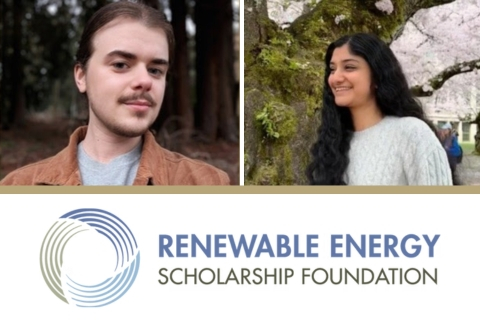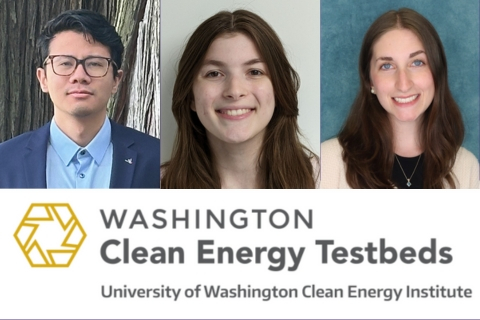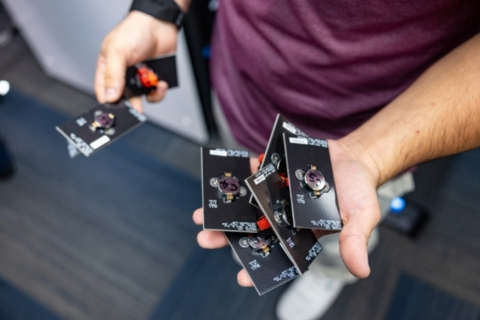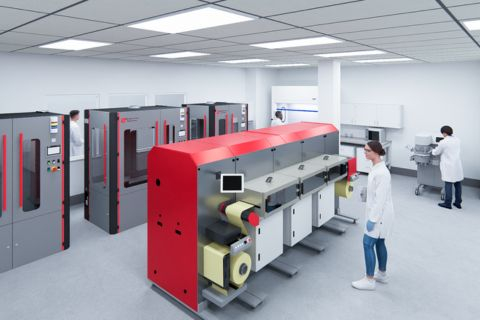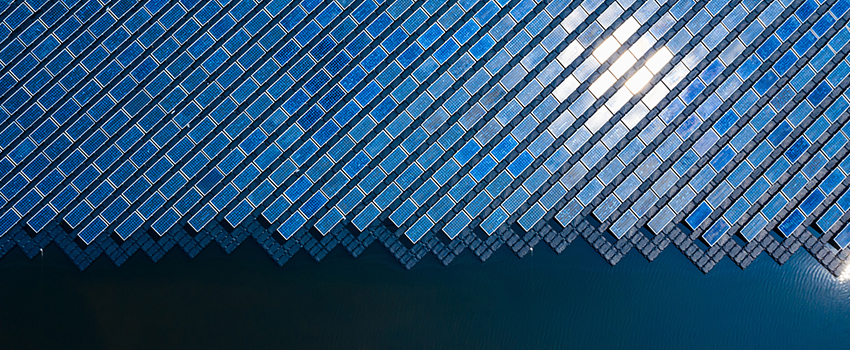
Overview
ChemE researchers are developing materials, devices, systems, and processes to tackle pressing sustainability challenges and decarbonize the economy. In the clean energy space, we innovate at the nanoscale all the way up to the grid level. Our faculty specialize in electrochemical systems and drive improvements in photovoltaics, batteries, fuel cells, and electronic polymers. For sustainability, ChemE labs are developing more-efficient processes for cleaning up pollutants and upcycling waste into valuable products.
Research topics
- Photovoltaics
- Batteries
- Fuel cells
- Electronic polymers
- Electrochemical systems
- Energy systems integration
- Catalysis for sustainable chemical transformations
- Advanced water treatment and filtration
Featured research clusters
Electrochemical energy conversion
Faculty: Adler, Cao, Schwartz, Stuve
We examine electrochemical processes for batteries, fuel cells, and electrolysis, both experimentally and computationally, to develop novel energy storage and conversion technologies. Our expertise encompasses the electrochemistry of insertion and conversion electrodes; electrocatalysis; battery management and diagnostics; and ion transport in electrolytes.
Materials for photonic and electronic energy conversion
Faculty: Beck, Bergsman, Cao, Hillhouse, Holmberg, Jenekhe, Pozzo, Sherma
Solar cells, batteries, and flat panel displays depend critically on the structure and composition of nanomaterials for improved efficiency, power, and durability. Our research enables new technologies based on high performance solar cells and new families of devices such as flexible batteries and displays.
Eliminating pollutants and upcycling waste
Faculty: Adler, Bergsman, Hillhouse, Rorrer, Stuve
We develop remediation processes that reduce, remove, or convert waste to value-added products. Our work involves advanced water treatment and filtration methods; catalytic processes for upcycling plastic waste; and technologies to enable materials circularity.
Large scale energy storage and utilization
Faculty: Liu, Schwartz
We investigate how to meet electricity needs at the grid level through a wide variety of clean energy sources (wind, solar, hydro, and nuclear) and design effective charging stations and on-board batteries for fleet vehicles such as buses.
Campus opportunities
- Clean Energy Institute
CEI supports the advancement of next-generation solar energy and battery materials and devices. The institute offers a graduate fellows program and the Clean Energy Bridge to Research REU, among other training opportunities. - Washington Clean Energy Testbeds
The Testbeds are a 15,000 square foot laboratory and collaborative workspace that enables start-ups and established businesses open access to state-of-the art R&D facilities. The Testbeds provide access to the instrumentation, training, and expertise necessary to scale next-generation clean energy devices and systems. - Molecular Engineering Materials Center
MEM·C coordinates research efforts among two colleges and five departments across UW’s campus and Pacific Northwest National Laboratory (PNNL) to address major trans-disciplinary challenges in materials research. - Molecular Engineering and Sciences Institute
MolES serves as a physical incubator and an intellectual accelerator for translational molecular-level research in clean tech and biotech. It houses the Molecular Analysis Facility and NESAC/BIO, a surface analysis instrumentation and research facility for biomedical research. - IMOD: NSF Center for Integration of Modern Optoelectronic Materials on Demand
IMOD's mission is to transform conventional and quantum optoelectronics through the development of atomically-precise semiconductor materials and scalable manufacturing processes. In addition, it aims to educate a diverse generation of scientists and engineers to lead the U.S. to technological prominence through convergent team-based collaboration across traditional disciplinary and organizational interfaces. - Chem-E-Car Team
Undergraduates can compete in the American Institute of Chemical Engineers' annual Chem-E-Car Competition. Students design and construct a car powered by a chemical energy source, that will safely carry a specified load over a given distance and stop. - Coming soon: the multimillion-dollar Center for Advanced Materials and Clean Energy Technologies
